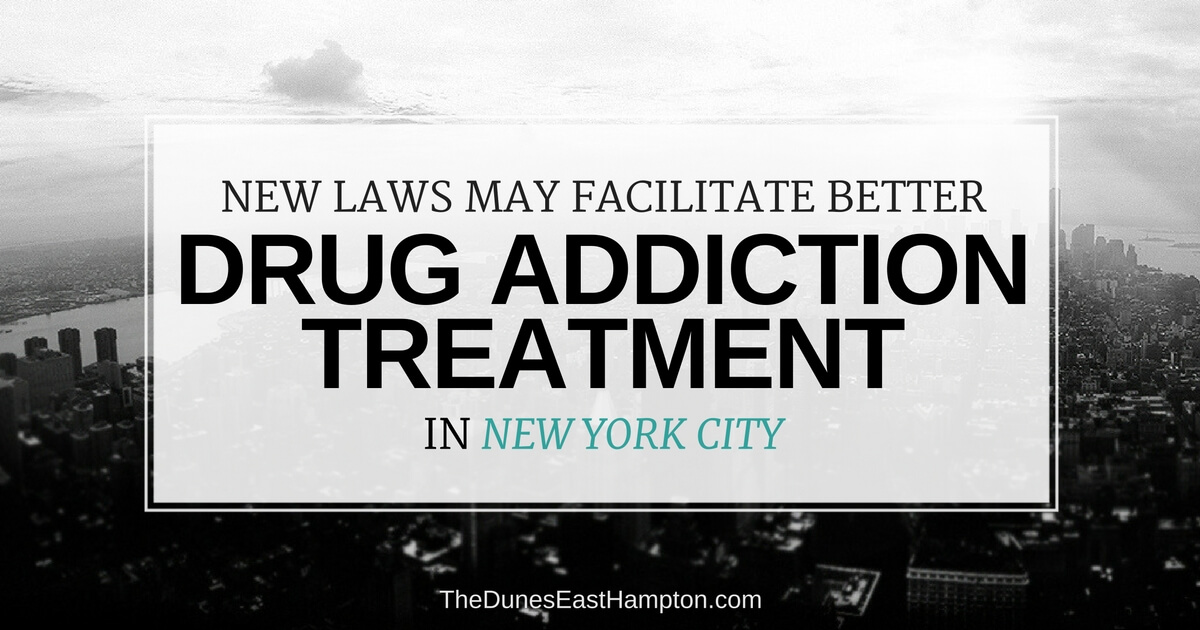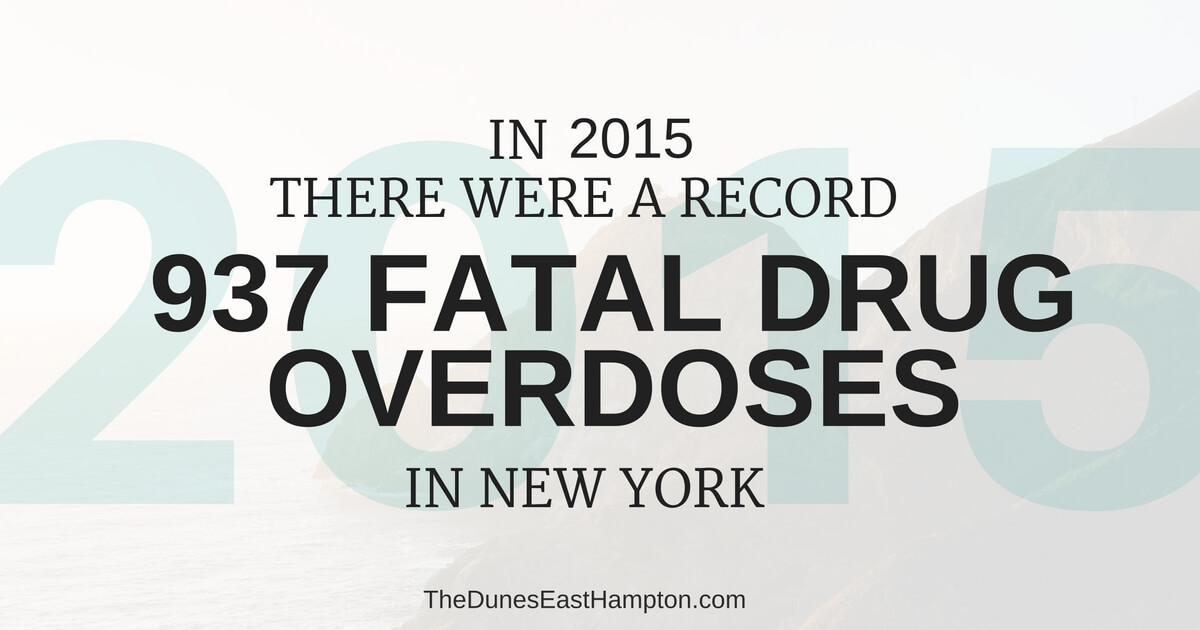
New York City’s New Laws May Facilitate Better Heroin And Drug Addiction Treatment
When people out-of-state think of New York City, they often think of high drug use rates. New York City does have a significant heroin problem, but legislators are coming up with new plans to combat it.
New York City is moving away from a past ideology that advocated putting heroin and other drug addicts in jail or forcing them to quit “cold turkey.” Instead, the city is trying to help addicts access treatment, and it is giving them safe places to use their drugs. This heralds a new direction for drug addiction treatment that other cities and states may be able to benefit from.
Current New York State Heroin Laws
Currently, New York City has several strict anti-heroin laws. Possession of over 8 ounces is a class A-1 felony, which carries the most severe punishments of any felony class. Punishment for an A-1 felony can include fines up to $150,000 in some states. They also include long prison sentences, up to life without parole.
In New York, possession of any amount of narcotic drugs with intent to sell is a Class B felony. Persons convicted of Class B felonies often face life on probation and must pay fines up to $30,000 in most states. Class B felonies may also elicit prison terms as long as 60 years.
Knowingly selling any amount of a controlled substance is a Class D felony under New York law. Class D felonies can incur prison terms of up to 25 years, hefty fines, and lengthy probation terms. Selling or intent to sell narcotics or controlled substances to anyone under 21 automatically takes a Class D felony up to Class B. A major drug trafficking conviction in New York will bump a class B or D felony up to an A-1.
New York City’s Unconventional Heroin Problem Response
Such stiff penalties can dramatically decrease the chance a heroin or other addict will recover. Legislators such as Ithaca Mayor Svante Myrick hopes to help people avoid the deadly consequences of lifelong addiction. According to Fox News, Myrick has an unconventional solution to New York City’s problem with heroin and other drugs: He wants to open a supervised heroin injection facility.
“I have watched for 20 years this system that just doesn’t work,” Myrick told Fox News. “We have people shooting up in alleys, in bathroom stalls, and too many of them are dying.”
Myrick also cited personal experience as a motive for the supervised injection facility. His own father was a drug addict, giving him a firsthand view of heroin addiction’s consequences.
“Heroin is the worst drug we have on the streets here in Ithaca,” Myrick added.
Drugs would not be sold at the injection facility, and the goal of the facility is not to let people get high whenever they want, Myrick said. Rather, the theoretical Ithaca facility would allow addicts to “ride out” heroin and other highs. Users would be under constant supervision from medical and other professionals who could direct them to addiction treatment services. Addicts using the injection facility would also have access to clean needles, reducing the occurrence of HIV, AIDS and similar diseases.
Kassandra Frederique, director of New York City’s policy office for the Drug Policy Alliance, is a supporter of Mayor Myrick’s plan.
“People around the country are saying they want a new approach [to drug addiction],” she told Fox News in a recent interview. “They want something that moves this into a health issue.”
Frederique and other supporters say they hope injection facilities will decrease the heroin problem from a crisis level to a manageable one.
Precedent For Drug Injection Facilities
Currently, there is only one drug injection facility in North America, located in Vancouver. The facility, Insite, has been open for the past 13 years and enjoyed a large degree of success. More drug addicts are seeking treatment and recovering from their addictions. Additionally, fewer addicts are injecting drugs, lowering Vancouver’s incidence of shared needles, HIV and AIDS. These successes were reported in a 2013 edition of the Vancouver Sun, and positive results continue.
However, there have been legal efforts to close down Insite, although they have not been successful. Prime Minister Justin Trudeau said he would like to see more injection facilities in Vancouver and across Canada. Indeed, about 100 successful facilities exist worldwide.
Can Drug Injection Facilities Succeed In The United States?
 Myrick and his supporters have good reason to believe facilities like Insite can succeed in New York and around the country. No one has died from an overdose at Insite, despite detractors’ fear of overdoses and other medical complications. Additionally, decriminalizing drugs sometimes leads people to desire them less.
Myrick and his supporters have good reason to believe facilities like Insite can succeed in New York and around the country. No one has died from an overdose at Insite, despite detractors’ fear of overdoses and other medical complications. Additionally, decriminalizing drugs sometimes leads people to desire them less.
However, according to Fox News and other news sources, opening an injection facility would put Ithaca, New York City and other prospective locations “in the crosshairs of the federal government.” Although drugs would not be sold at injection facilities, “maintaining drug-involved premises is unlawful” under Title 21 of the Controlled Substances Act.
Additionally, overdoses among people 12 years and older have skyrocketed in the U.S. between 2002 and 2014. In 2015, there were a record 937 fatal drug overdoses in New York alone. Legislators have said opening a drug injection facility is tantamount to encouraging drug use and would expose cities to increased liability.
Drugs themselves present another hurdle for injection facility proponents. Some proponents point to the legalization of marijuana in some states as a reason why other drugs should be decriminalized. However, the addiction and withdrawal processes from heroin, cocaine and other illegal drugs are a whole different animal for New York law enforcement and legislators.
Unlike marijuana, heroin is a major narcotic. People are more likely to consider it dangerous or lethal even if it is used under medical supervision.
Will These Facilities Become Available Soon?
Probably not. Intensive studies are still underway to determine health and legal issues related to injection facilities and other legal drug dens. Many legislators are also reluctant to funnel hundreds of thousands of dollars into government-funded drug use. For example, New York City’s City Council has earmarked $100,000 dollars for supervised injection facilities, according to the New York Post. This money comes from a $5.6 million budget dedicated to AIDS treatment, which some legislators resent.
Visit Our Luxury Recovery Center
If you are addicted to heroin or another illegal drug, you do not have to face the severe punishment that come with convictions. Help is available! Contact The Dunes East Hampton now.
Our staff is highly qualified and our specialists are here to answer any questions you may have. Let us get you back on the right path. Don’t go at this alone! Help is available to you or your loved ones.







